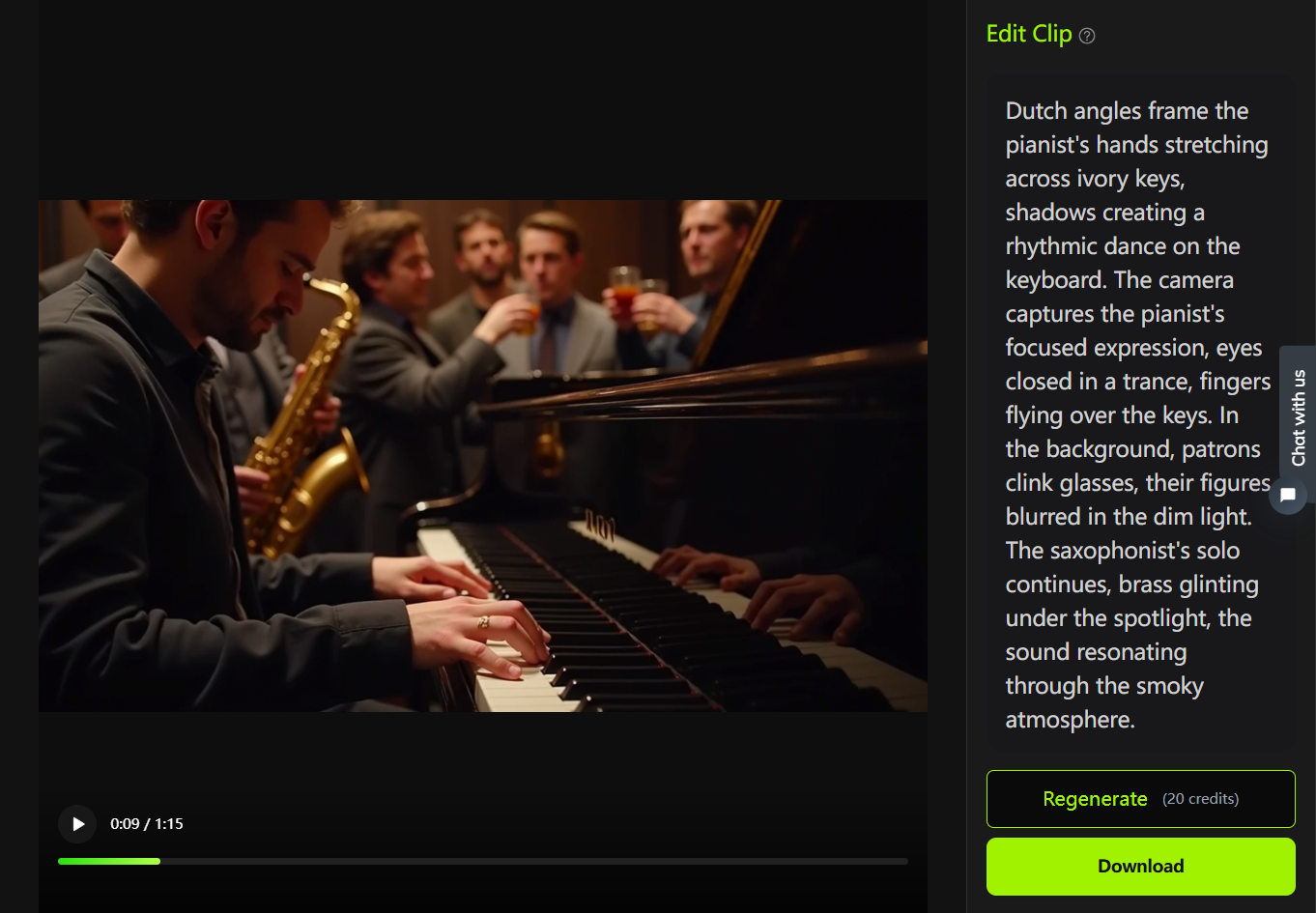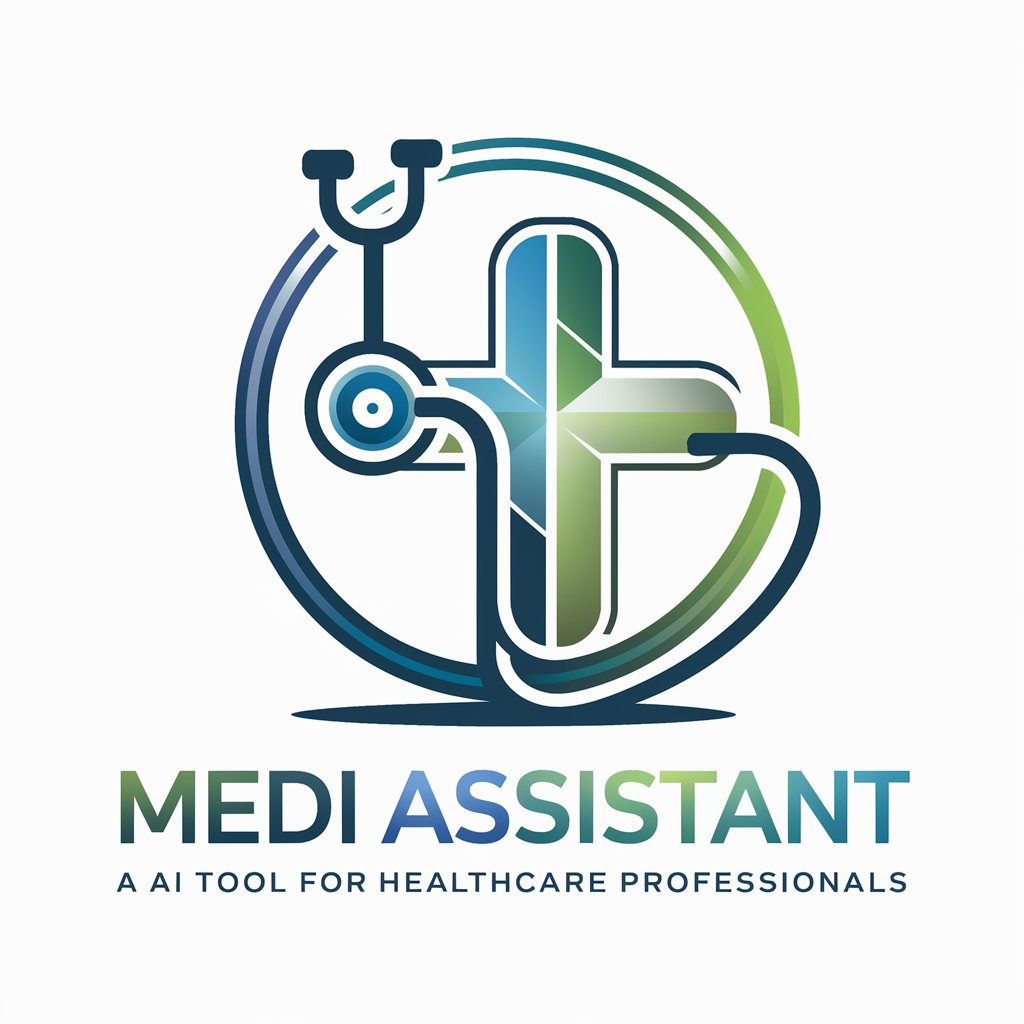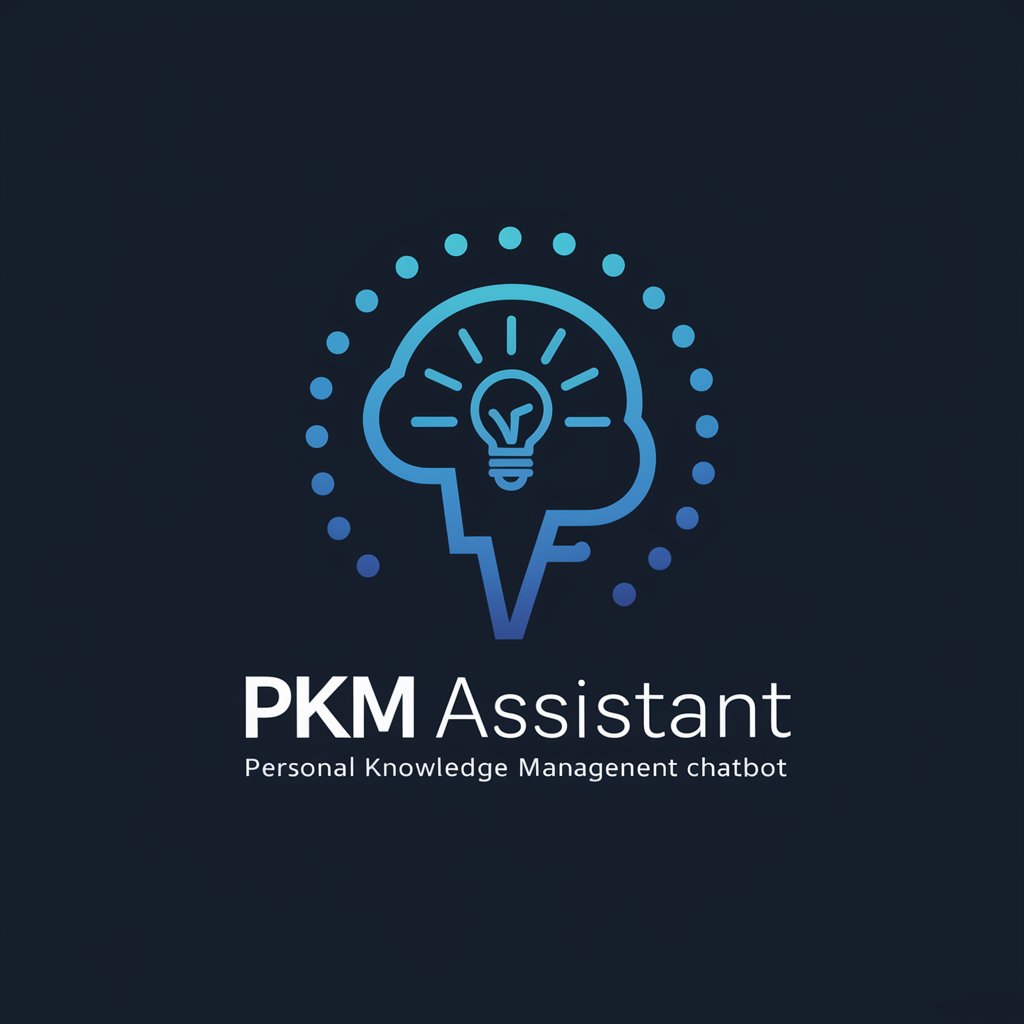
MSL Assistant - Find your KOL - KOL Discovery and Engagement
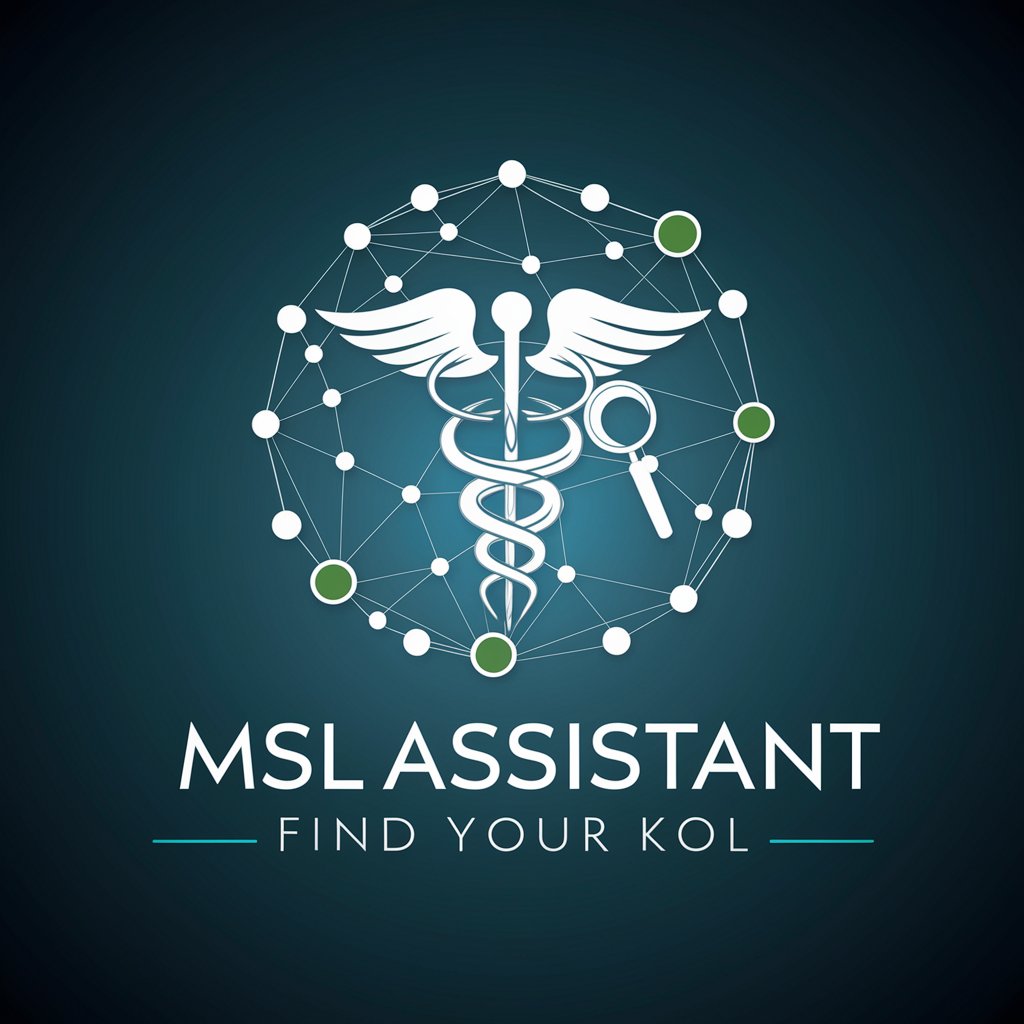
Hello! How can I assist you in finding Key Opinion Leaders today?
AI-powered KOL Discovery for MSLs
Identify key opinion leaders in the field of oncology within the state of California...
Find leading researchers in cardiology based in university hospitals in Texas...
List top professors involved in clinical trials for neurology in New York...
Locate prominent experts in immunology working at major institutions in Florida...
Get Embed Code
Overview of MSL Assistant - Find your KOL
MSL Assistant - Find your KOL is a specialized tool designed to assist Medical Science Liaisons (MSLs) in identifying and engaging with Key Opinion Leaders (KOLs) within specific therapeutic areas across different regions or states. This digital assistant leverages a vast database and network analysis to pinpoint professionals who are leading the way in medical research, clinical trials, and the development of international guidelines in their fields. For example, an MSL working in oncology in California may use this tool to find KOLs based at university hospitals in Los Angeles who are pioneering new cancer treatments. The assistant factors in the MSL's therapeutic area, geographical focus, and specific criteria such as research interests or institutional affiliations to generate a tailored list of up to 10 potential KOLs. This process not only saves time but also ensures that MSLs can strategically plan their outreach and engagement efforts. Powered by ChatGPT-4o。

Key Functions and Real-World Applications
KOL Identification
Example
Identifying leading cardiologists involved in cutting-edge heart disease research at the University of Texas Medical Branch.
Scenario
An MSL focusing on cardiovascular diseases in Texas uses the tool to find KOLs who have recently published significant research in this area or contributed to new heart disease treatment guidelines.
Outreach and Engagement Strategy Planning
Example
Developing a detailed engagement plan for a newly identified KOL who is a thought leader in Alzheimer's disease research.
Scenario
After identifying a KOL, the tool provides insights into their recent publications, ongoing clinical trials, and conference presentations. This information helps the MSL tailor communication and collaboration proposals that align with the KOL's interests and expertise.
Therapeutic Area Insights
Example
Gathering comprehensive data on emerging trends and research in immunology.
Scenario
MSLs can use the tool to stay informed about the latest developments in their therapeutic areas of interest. This function supports MSLs in maintaining their scientific knowledge and expertise, enhancing their interactions with KOLs.
Custom Search Filtering
Example
Filtering search results to find KOLs based on specific criteria like research focus on pediatric oncology.
Scenario
This feature allows MSLs to narrow down their search to very specific niches or subfields within a broader therapeutic area, enabling highly targeted KOL identification and outreach strategies.
Target User Groups
Medical Science Liaisons (MSLs)
MSLs are the primary users, benefiting from streamlined KOL identification and engagement planning. This tool aids them in building and maintaining relationships with key medical experts, facilitating the exchange of scientific information that can advance medical research and patient care.
Medical Affairs Teams
Medical affairs professionals, including those involved in strategy, communications, and operations, can utilize the tool to support their MSL teams, ensure alignment with scientific engagement goals, and monitor the landscape of medical thought leadership within specific therapeutic areas.
Clinical Research Organizations (CROs)
CROs can benefit from identifying KOLs for potential collaboration on clinical trials and research projects. The tool enables them to find experts with the necessary background and interest in participating in or advising on clinical studies.

How to Use MSL Assistant - Find your KOL
Start Your Journey
Visit yeschat.ai to initiate your experience with a free trial, no login or ChatGPT Plus required.
Define Your Criteria
Provide specific information about your therapeutic area, country, and region or state of interest. Adding details like specific institutions or research interests will refine your search.
Explore KOL Profiles
Review the compiled list of up to 10 Key Opinion Leaders (KOLs) tailored to your criteria, focusing on areas of expertise, recent publications, and their community influence.
Plan Your Engagement
Utilize the insights offered about each KOL to strategize your outreach and engagement, ensuring your interactions are informed and targeted.
Continuous Learning
Regularly update your search criteria based on evolving therapeutic landscapes and engage with newly identified KOLs to expand your network.
Try other advanced and practical GPTs
Yoguru
Ancient wisdom at your fingertips

Yogurt GPT
Wisdom and Humor, AI-powered!

Yogurt Guru
Your AI-Powered Yogurt Companion

Fro-Yo Shop Social Content Generator
Automating Engagement with AI Power

Poetry Smash and Slam
Elevate Your Poetry with AI-Powered Analysis

Stas-Maxter
Empower your coding journey with AI
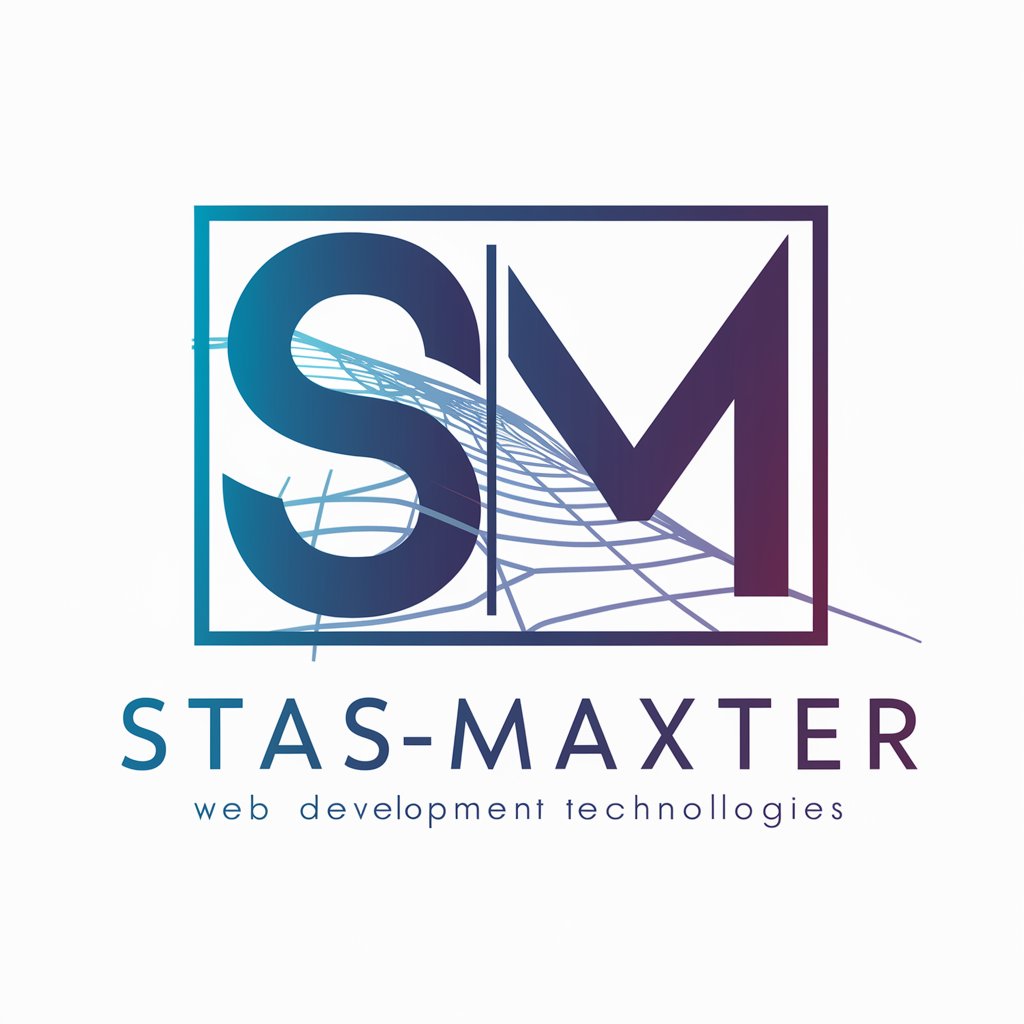
Evolutionary Explorer
Explore Evolutionary History with AI

Evolutionary Sexuality Psychology
Unlocking the Evolutionary Secrets of Human Sexuality
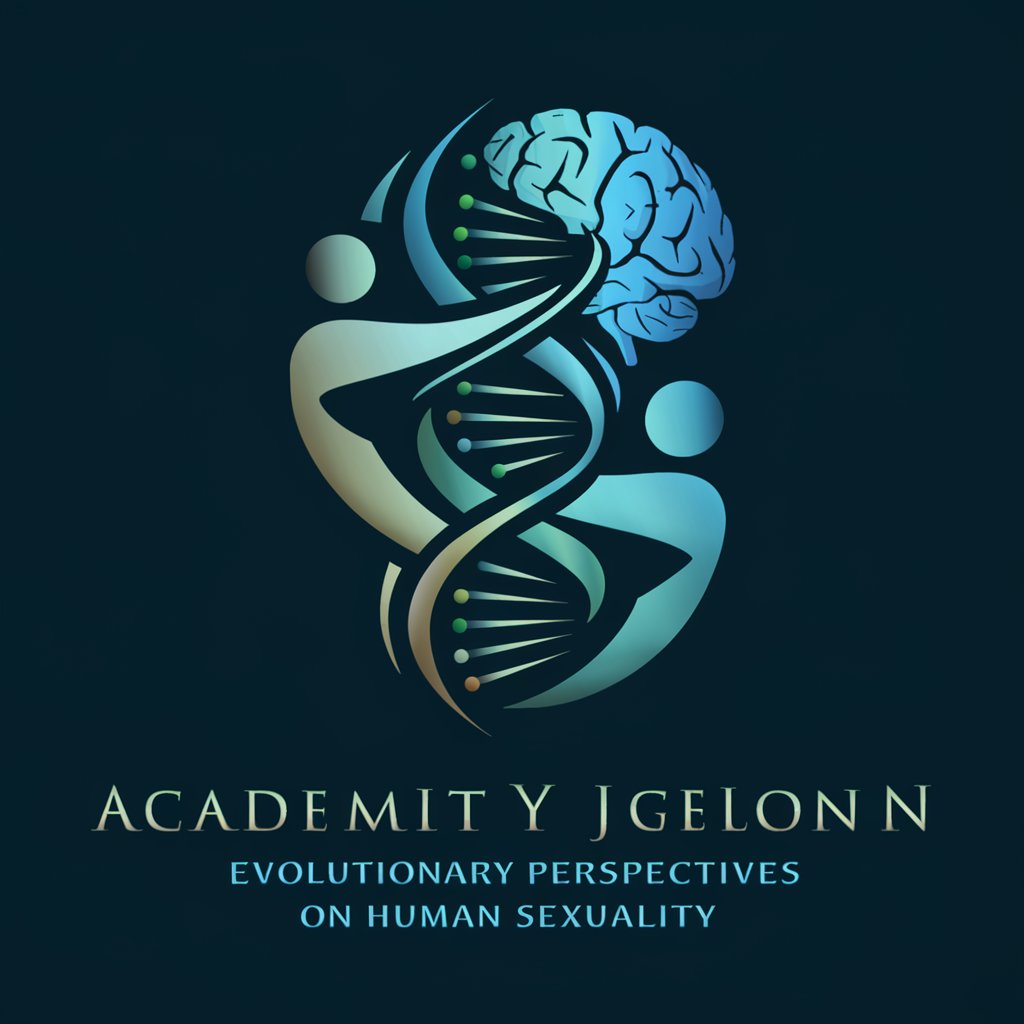
EYENET SalesCraft
Enhancing Sales with AI Precision
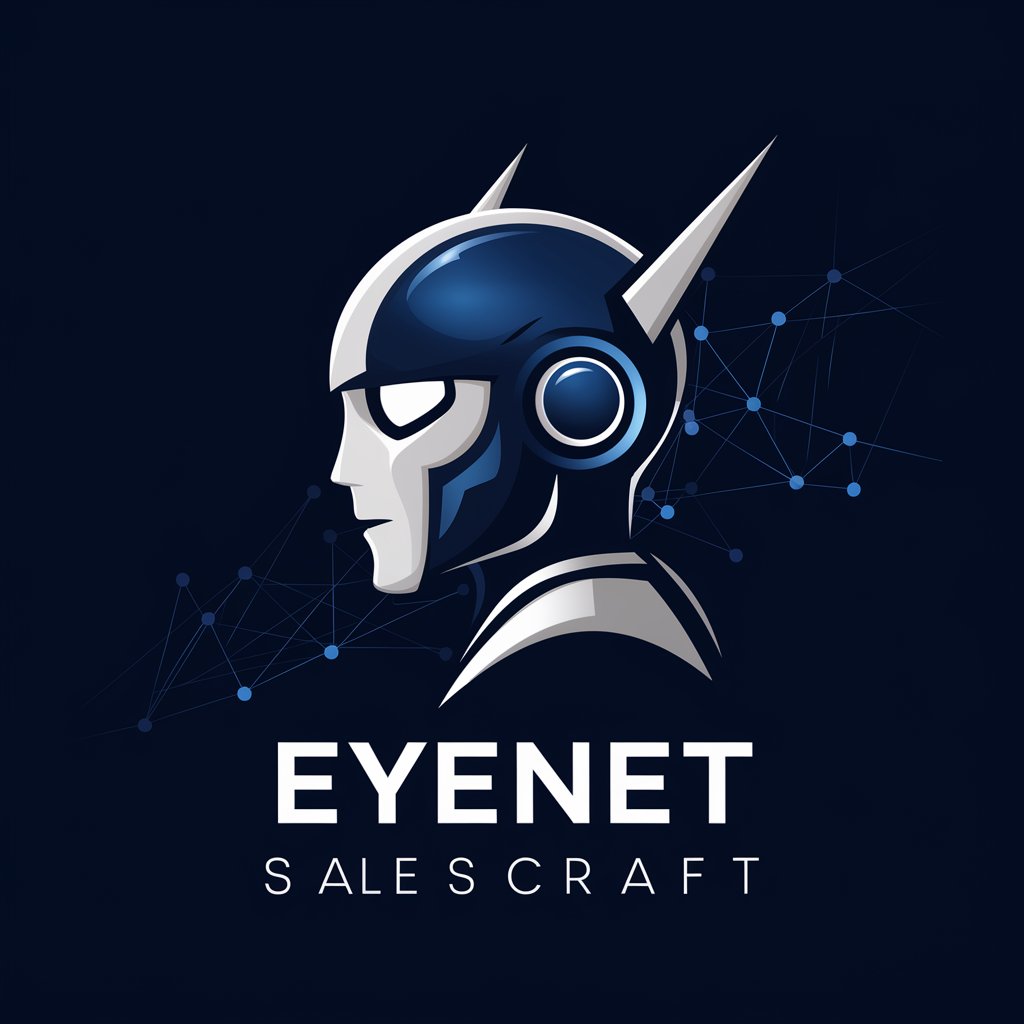
SkyTalk Trainer
Train like you fly, fly like you train.
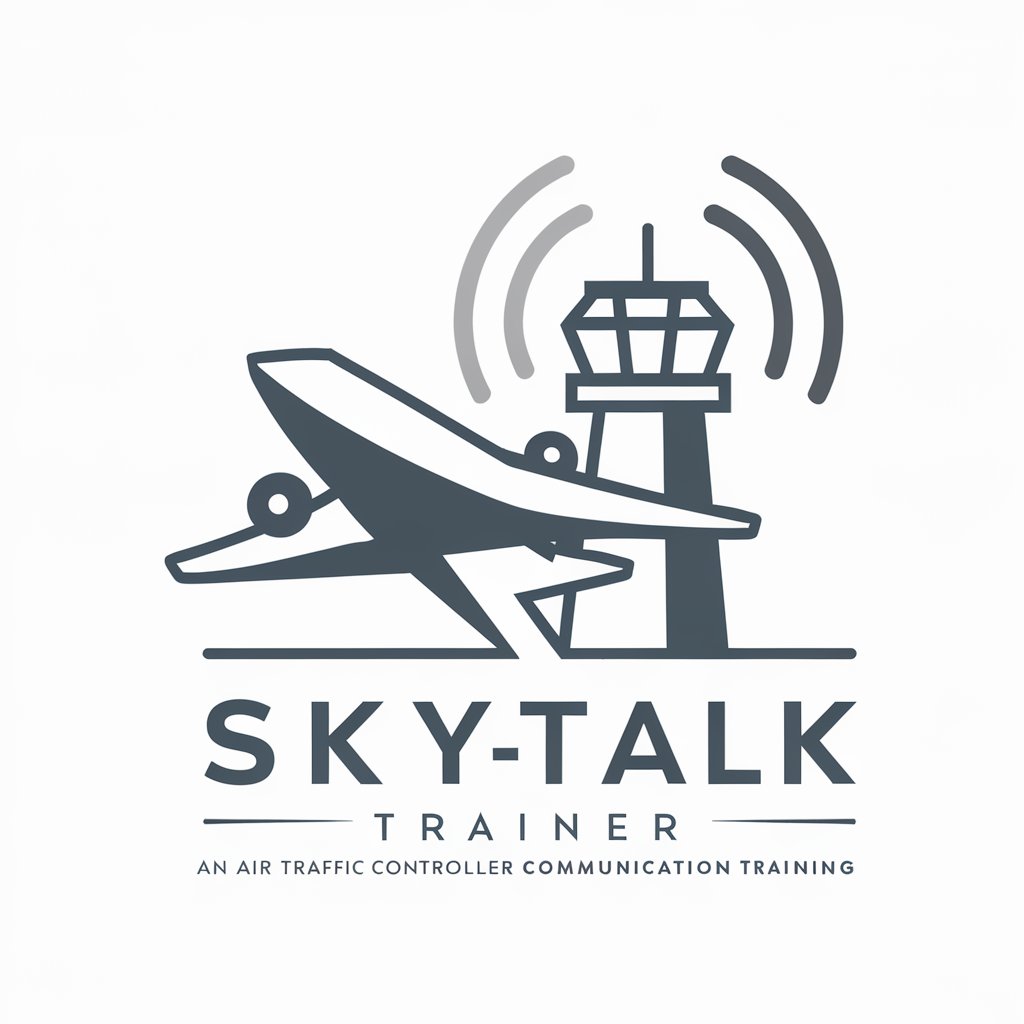
Jade
Engage with AI, Teen Style!

California Forage Chef
Discover Nature's Bounty Safely

Frequently Asked Questions about MSL Assistant - Find your KOL
What information do I need to provide to start using MSL Assistant?
You'll need to specify your therapeutic area, country, and the specific region or state of interest. Additional details like specific institutions or research interests can further refine your search.
How does MSL Assistant identify Key Opinion Leaders (KOLs)?
It prioritizes University hospitals in major cities and focuses on professors involved in clinical trials and those who contribute to international guidelines, compiling a list of up to 10 KOLs based on your criteria.
Can MSL Assistant help with engagement strategies?
Yes, it provides insights into KOLs' expertise, publications, and influence, aiding in the development of informed and targeted outreach strategies.
Is it possible to update search criteria after the initial search?
Absolutely. The therapeutic landscape is constantly evolving, and updating your search criteria regularly can help you identify and engage with new KOLs.
How current is the information provided by MSL Assistant?
The tool uses the latest available data to provide up-to-date information on KOLs, ensuring that MSLs have access to current expertise and publications.
